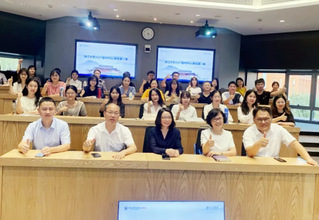时间:2016年1月11日(周一)上午10:00—11:00
地点:体育外围平台APP1102会议室
主讲人:Ming Hu, Associate Professor of Operations Management at Rotman School of Management, University of Toronto.
主持人:杨翼 副教授
Abstract:
Motivated by the rise of the sharing economy, we consider an intermediary firm's problem of dynamically matching demand and supply of heterogeneous types over a discrete-time horizon. More specifically, there are two finite disjoint sets of demand and supply types. Associated with each possible matching of a demand type and a supply type is a reward. In each period, demand and supply of various types arrive in random quantities. The firm's problem is to decide on the optimal matching policy to maximize the total discounted rewards minus costs, given that unmatched demand and supply will incur waiting or holding costs, and will be carried over to the next period with abandonments.
For this general dynamic matching problem, we obtain a set of distribution-free structural results. First, using only matching rewards, we define a partial order between pairs of demand and supply types (which do not necessarily share a common demand or supply type). With this notion of partial order, we show it is optimal to prioritize the matching of the dominating pair over the dominated pair, and to greedily match a perfect pair that dominates all other pairs sharing a common demand or supply type. Second, we impose a reward structure in which types have (unidirectional) ``taste" differences. For these horizontally differentiated types, we show that there exists a matching priority hierarchy related to ``taste" locations: for any given demand (or supply) type, the closer its distance to a supply (or demand) type, the higher the priority to match the closer pair. Along the priority hierarchy, the optimal matching policy has a match-down-to structure for any pair of demand and supply types: there exist state-dependent thresholds; if the levels of demand and supply are higher than the thresholds, they should be matched down to the thresholds; otherwise, they should not be matched. Third, we impose a reward structure in which types have ``quality" differences. For these vertically differentiated types, the optimal matching policy has an even simpler top-down matching structure (in short, ``line up, match up"): line up demand types and supply types in descending order of their ``quality" from high to low; match them from the top, down to some level. When demand and supply types have the same abandonment rate, the match-down-to levels have monotonicity properties with respect to the system state, and the one-step-ahead heuristic policy has a simplified state-dependent structure. Lastly, we study the deterministic counterpart of the stochastic problem and show that its solution can be obtained by solving a linear program or approximated by another linear program with much fewer decision variables. It is asymptotically optimal to re-solve the linear program successively for the current time and state and apply the solution as a heuristic policy, when the time and the arrivals of demand and supply are scaled up proportionally.

Bio: Ming Hu is an Associate Professor of Operations Management at Rotman School of Management, University of Toronto. He received a master's degree in Applied Mathematics from Brown University, and a Ph.D. in Operations Research from Columbia University in 2009. His research explores the interface between operations management and marketing, with a focus on analyzing strategic interactions among firms and between firms and consumers, in the context of revenue management, supply chain management and service operations management. His research has been published in Management Science, Operations Research, Marketing Science, Manufacturing & Service Operations Management, and Production and Operations Management. Most recently, he studies operations management in the context of social buying, crowdfunding, crowdsourcing, and two-sided markets.





